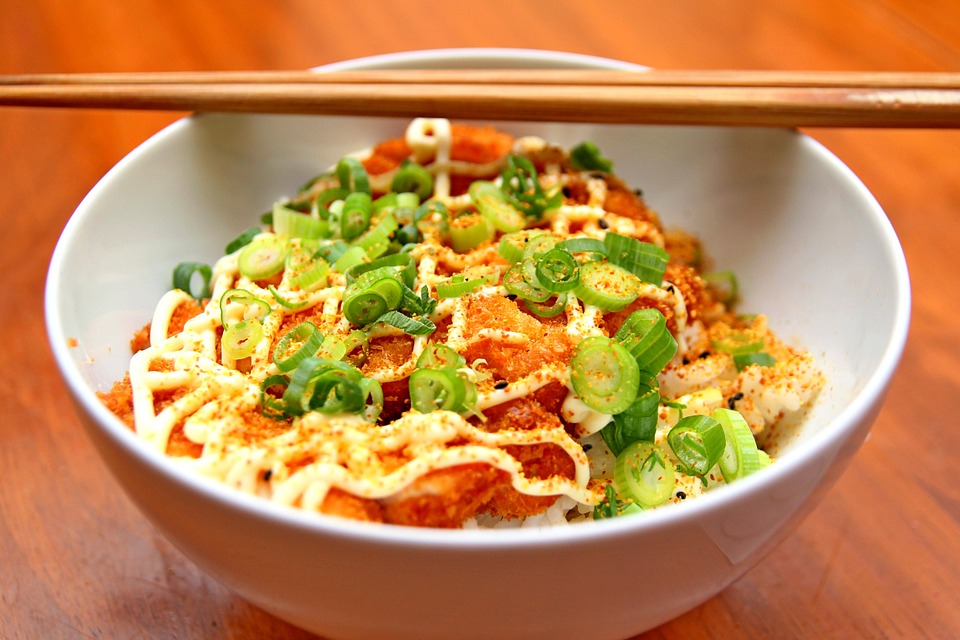There is no clear answer on how to improve a person’s life expectancy, but lifestyle changes may partly attribute to living a long and healthy life. Diet is one of those choices that factor into longevity.
Express reports that a certain diet may help boost the life expectancy of a person. The Mediterranean diet has long been recommended by health experts and doctors everywhere, but more reports show that the Japanese diet has also the same benefits and perhaps more compared to the usual western diets. This kind of diet is made up of noodles, steamed rice, tofu, fish, natto, seaweed, fruits and vegetables prepared every way. The Japanese diet is also low in added fat and added sugar.
There is also a good amount of eggs, dairy, and meat. All of these kinds of food are prepared in such a way that the portion sizes may be smaller than Western servings, but the high fiber content present in soups and other dishes helps suppress cravings, bringing a feeling of fullness and therefore results in a person eating less. The Japanese diet has also been found to help in overall weight loss, which in turn lowers the risk of a person developing chronic diseases.
Backing this diet up, despite the high salt intake, the rates of heart disease among Japanese people are still relatively low. One study involving 33 participants to take the Japanese diet over a six-week period found a significantly lowered risk of developing type 2 diabetes by 91 percent, along with lowered levels of bad cholesterol. A study spanning 15 years in 75,000 Japanese people found that taking the Japanese diet led to a lower risk of premature death by 15 percent.
Although diet makes up a big part of improved life expectancy and overall weight loss, Express also reports that extended time of fasting between meals can also help boost longevity. A study was done analyzing this with mice. The researchers divided 292 male mice into two groups to study the change in meal times can lead to increased life expectancy. They found that regardless of the number of calories consumed, the male mice that fasted turned out to be healthier overall compared to the mice that frequently ate.
The impressive results may suggest that the same could apply to humans. Regardless of the kind of food being taken, certain eating patterns could also contribute to longevity.



 Viking Therapeutics Sees Growing Strategic Interest in $150 Billion Weight-Loss Drug Market
Viking Therapeutics Sees Growing Strategic Interest in $150 Billion Weight-Loss Drug Market  Novo Nordisk Stock Surges After FDA Approves Wegovy Pill for Weight Loss
Novo Nordisk Stock Surges After FDA Approves Wegovy Pill for Weight Loss  RFK Jr. Overhauls Federal Autism Panel, Sparking Medical Community Backlash
RFK Jr. Overhauls Federal Autism Panel, Sparking Medical Community Backlash  Weight-Loss Drug Ads Take Over the Super Bowl as Pharma Embraces Direct-to-Consumer Marketing
Weight-Loss Drug Ads Take Over the Super Bowl as Pharma Embraces Direct-to-Consumer Marketing  Merck Raises Growth Outlook, Targets $70 Billion Revenue From New Drugs by Mid-2030s
Merck Raises Growth Outlook, Targets $70 Billion Revenue From New Drugs by Mid-2030s  Eli Lilly and Novo Nordisk Battle for India’s Fast-Growing Obesity Drug Market
Eli Lilly and Novo Nordisk Battle for India’s Fast-Growing Obesity Drug Market  Royalty Pharma Stock Rises After Acquiring Full Evrysdi Royalty Rights from PTC Therapeutics
Royalty Pharma Stock Rises After Acquiring Full Evrysdi Royalty Rights from PTC Therapeutics  Novo Nordisk and Eli Lilly Cut Obesity Drug Prices in China as Competition Intensifies
Novo Nordisk and Eli Lilly Cut Obesity Drug Prices in China as Competition Intensifies  FDA Approves Mitapivat for Anemia in Thalassemia Patients
FDA Approves Mitapivat for Anemia in Thalassemia Patients  AstraZeneca’s LATIFY Phase III Trial of Ceralasertib Misses Primary Endpoint in Lung Cancer Study
AstraZeneca’s LATIFY Phase III Trial of Ceralasertib Misses Primary Endpoint in Lung Cancer Study  Sanofi to Acquire Dynavax in $2.2 Billion Deal to Strengthen Vaccine Portfolio
Sanofi to Acquire Dynavax in $2.2 Billion Deal to Strengthen Vaccine Portfolio  California Jury Awards $40 Million in Johnson & Johnson Talc Cancer Lawsuit
California Jury Awards $40 Million in Johnson & Johnson Talc Cancer Lawsuit 































